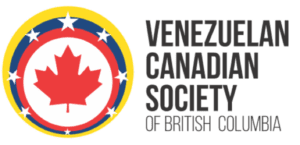By Yajaira Moran
Alberto, 6 years old, from Venezuela tell his mom that he didn’t know that in Venezuela there was a fountain so tall that it falls from the heights of a mountain (he was referring to the Salto Angel, in Bolivar state of Venezuela); he has had the opportunity to learn the Aztecs history and the Incas’ ingenuity, listening with curiosity the story of Manco Capac y Mamá Ocllo and their importance for the foundation of Cusco in Peru. Alberto has also enthusiastically danced a vallenato with live music, while “Benito”, the boy who illustrates the adventures about Colombia, accompanies him in the journey to visit the country regions.
The program Aquí se habla español of VCSBC was created at the end of 2015 due to the need of having one space for the children where they would speak just Spanish and expand the knowledge about this language; the program also teaches them the culture of Spanish-speaking countries. In an informal survey among Hispanic parents, we concluded that when younger children attend schools where they only listen and speak English, tend to not speak Spanish at home and, in consequence, start limiting their vocabulary in the Spanish language, which usually is the parents’ language.
This behaviour has been observed for several researchers in different countries; the investigations state that this kind of conduct is because children believe that speaking only English will facilitate them to make friends and also help them to integrate with their peers and not feeling as people who are different. Based on these concerns, a team of volunteers of VCSBC: Ana Carina García, Katherine Cortés, María Cristina Cruz, Valentina Ruiz, Yolmar Girod and Rocío García organized this program for children from 6 to 10 years old, initiative that had brought many satisfactions and joy. Lately, Simelis Cedeño and Erika Flores, joined the team. Erika is working with the program Mamá Gansa, due the attendance of children under the age of six who wanted to be with their siblings in Aquí se habla Español.
Aquí se habla Español had been developed with the support of Dr. Samuel Navarro and some of the UBC students of Spanish, with collaboration of Aura Montilla and Father Richard Zanotti from Our Lady of Sorrows Catholic Church, he let us use their classrooms some Saturday mornings for the workshops. Special mention and gratitude to the contributors in this first season:
- Mexican Consulate, mainly to the Consul Dulce Orozco and Lurdez Ruiz and her dance team
- Marlene Curie from Perú,
- Colombian Consulate, our Colombian Friends Ana María Bustamante, Olga Rodríguez and her daughters, the vallenato musicians and the dancer Liliana Castañeda.
We also have had La Maleta Sabia, full with books in Spanish donated by the community to motivate reading in Spanish; Cynthia Mollison, representing My Barefoot World, selling books in Spanish and English, to obtain some funds to support the workshops continuation.
We should highlight an awesome volunteer who has been with us the whole season of Aquí se habla español: Ivan Wolff, whom with his mother, Natalia Brocks, brings cupcakes and brownies, fill out attendance forms, help with the children, try to help with organization, play basketball, help to serve quesadillas and obleas and join the team with the goal that children and parents that attended to the workshops learn the best of our Hispanic culture.
Alberto, the child who we talked about, already has met children from other countries who also speak Spanish, define words and knows where Colombia is; he had played Mexican lottery and knows the marvelous “magic jug” from the Incas. Our achievements motivate us to continue with the workshops in September, with innovations and activities created with the purpose that our children keep using Spanish and attending to Aquí se habla español.
